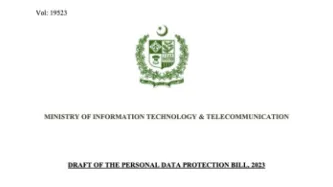Search
Content type: Long Read
“Hey [enter AI assistant name here], can you book me a table at the nearest good tapas restaurant next week, and invite everyone from the book club?” Billions of dollars are invested in companies to deliver on this. While this is a dream that their marketing departments want to sell, this is a potential nightmare in the making.Major tech companies have all announced flavours of such assistants: Amazon’s Alexa+, Google’s Gemini inspired by Project Astra, Microsoft’s Copilot AI companion and…
Content type: Long Read
IntroductionIn early October this year, Google announced its AI Overviews would now have ads. AI companies have been exploring ways to monetise their AI tools to compensate for their eye watering costs, and advertising seems to be a part of many of these plans. Microsoft have even rolled out an entire Advertising API for its AI chat tools.As AI becomes a focal point of consumer tech, the next host of the AdTech expansion regime could well be the most popular of these AI tools: AI chatbots.…
Content type: Long Read
Elections and political campaigns are increasingly mediated by digital technologies. These technologies rely on collecting, storing, and analysing personal information to operate. They have enabled the proliferation of tailor-made political advertising. The recent proliferation of AI technologies is enabling ever more sophisticated content creation and manipulation in the context of elections.In parallel, governments are continuing to invest in digital technologies for the running of elections…
Content type: Advocacy
Generative AI models cannot rely on untested technology to uphold people's rightsThe development of generative AI has been dependent on secretive scraping and processing of publicly available data, including personal data. However, AI companies have to date had an unacceptably poor approach towards transparency and have sought to rely on unproven ways to fulfill people's rights, such as to access, rectify, and request deletion of their dataOur view is that the ICO should adopt a stronger…
Content type: Advocacy
Generative AI models are based on indiscriminate and potentially harmful data scrapingExisting and emergent practices of web-scraping for AI is rife with problems. We are not convinced it stands up to the scrutiny and standards expected by existing law. If the balance is got wrong here, then people stand to have their right to privacy further violated by new technologies.The approach taken by the ICO towards web scraping for generative AI models may therefore have important downstream…
Content type: News & Analysis
Privacy International (PI) is concerned by developments in Pakistan regarding the enactment of the Draft Personal Data Protection Bill, 2023 and the opaque process which will see the bill become law.
The Bill was published on 19 May 2023 by the Ministry of Information Technology and Telecommunication ('MITT'). However no open and inclusive consultation was open for comments to be submitted to the MITT. In a concerning development it was reported that the Bill was approved by the Federal…
Content type: Advocacy
Background
In August 2022, Amazon announced that they had entered into a definitive merger agreement to acquire iRobot, a company that specialises in designing and building consumer robots. The transaction was formally notified to the European Commission on 1 June 2023, while the UK Competition and Markets Authority (CMA) has already launched an investigation into the transaction since April 2023.
We believe that this acquisition is likely to significantly impede effective competition in and…
Content type: Advocacy
Privacy International responded to the consultation on the proposed data protection bill (the "Bill") to reform the current law 25.326
We welcome the continued efforts by Argentina to provide protections for the right to privacy, already enshrined in the Constitution of Argentina. PI welcomes the main objective of the Bill, namely to regulate the processing of personal data in order to guarantee fully the exercise of data subjects’ rights in accordance with Article 43 of the Constitution (…
Content type: Advocacy
In our submission we outline our concerns with the industry as a result of extensive technical research and complaints taken to data protection authorities in Europe as a result.
Data brokers must specifically be included in "actors in scope."
We recommend that "data brokers" are specifically included in the list of "actors in scope". A data broker is a company that collects, buys and sells personal data and this is often how they earn their primary revenue. It is a term that is entering…
Content type: Advocacy
Now is the time to strengthen not weaken data protection to keep us all safe. Here we outline some edited areas of our consultation response that highlight the impact of the proposed loss or weakening of many important protections:
The proposal to broadening consent and further processing for research purposes:
PI urges caution with regard to provisions that seek to potentially undermine the strict conditions around obtaining consent. The GDPR placed stronger conditions on obtaining consent…
Content type: Report
This briefing takes a look at the private intelligence industry, a collection of private detectives, corporate intel firms, and PR agencies working for clients around the world that have made London their hub.
Often staffed by ex-spooks, and promising complete secrecy, little is known about them. But reports over the years have exposed their operations, including things like hacking and targeting of anti-corruption officials, spying on peaceful environment activists, and running fake '…
Content type: Video
Links
The Enablers by the Bureau of Investigative Journalism
PI's report
Submit your podcast questions
Sign up to our mailing list
Places to listen
You can listen and subscribe to the podcast where ever you normally find your podcasts:
Spotify | Apple podcasts | Castbox | Google podcasts | Overcast | Stitcher | Pocket Casts | Peertube | Youtube | Soundcloud | Podbean | Podcast Republic | Breaker | Podcast Addict | Deezer | and more...
Content type: Advocacy
The role that personal data plays in political campaigns https://privacyinternational.org/learn/data-and-elections and the risks of data abuse and exploitation only entered into the public discourse a few years ago, when Cambridge Analytica became a household name thanks to several scandals over the course of 2017 and 2018.
Since then, we have seen a flurry of initiatives that have helped shed light on the otherwise very opaque practices of digital campaigning. There have been public…
Content type: Long Read
This piece is a part of a collection of research that demonstrates how data-intensive systems that are built to deliver reproductive and maternal healthcare are not adequately prioritising equality and privacy.
What are they?
Short Message Services (SMS) are being used in mobile health (MHealth) initiatives which aim to deliver crucial information to expecting and new mothers. These initiatives are being implemented in developing countries experiencing a large percentage of maternal and…
Content type: News & Analysis
The notorious Clearview AI first rose to prominence in January 2020, following a New York Times report. Put simply, Clearview AI is a facial recognition company that uses an “automated image scraper”, a tool that searches the web and collects any images that it detects as containing human faces. All these faces are then run through its proprietary facial recognition software, to build a gigantic biometrics database.
What this means is that without your knowledge, your face could be stored…
Content type: Press release
Privacy International (PI), together with Hermes Center for Transparency and Digital Human Rights, Homo Digitalis and noyb - the European Center for Digital Rights, has today filed a series of legal complaints against Clearview AI, Inc. The facial recognition company claims to have “the largest known database of 3+ billion facial images”. The complaints were submitted to data protection regulators in France, Austria, Italy, Greece and the United Kingdom.
As our complaints detail, Clearview AI…
Content type: News & Analysis
The report on disinformation by the UN Special Rapporteur on the promotion and protection of the right to freedom of opinion and expression follows a growing trend by international bodies (including the Organization of American States and the European Commission) to assess and regulate the global phenomenon that is disinformation.
The report strongly links the spread of disinformation with the gratuitous data collection and profiling techniques utilised by the online…
Content type: Advocacy
This report is presented by TEDIC (Technology and Community Association) and Privacy International (PI). TEDIC is a non-governmental, non-profit organization, based in Asunción, that promotes and defends human rights on the Internet and extends its networking to Latin America. PI is a London based human rights organization that works globally at the intersection of modern technologies and rights.
TEDIC and PI wish to express some concerns about the protection and promotion of the right to…
Content type: News & Analysis
Uganda's Presidential election in January 2021 resulted in the incumbent President Museveni winning his sixth term in office, having held power for 35 years. The election took place amidst a global pandemic and the run up to election day was fraught. Violence left dozens dead and hundreds more arrested, including the opposition candidate Bobi Wine. Mass rallies and in person campaign meetings were banned due to Covid restrictions and political parties in Uganda were encouraged to conduct “…
Content type: News & Analysis
Unwanted Witness’ research into Safeboda highlighted the company’s failure to comply with some of the law's core data protection principles, with a number of implications for the exercise of data subject rights. The enforcement action against Safeboda by National Information Technology Authority, Uganda (NITA-U) requires the company to make fundamental changes to how they handle people's personal data in order to comply with the Data Protection and Privacy Act, 2019.
This first landmark…
Content type: Advocacy
Background
Giphy is a searchable database for Graphic Interchange Format (‘GIF’) files, stickers, emojis, text, videos and Arcade (remixable video games). This database can be queried through the Giphy search engine, either via its main website (giphy.com), its API or its SDK. Content obtained can then be shared via their URL or be integrated in another service such as a website or an app. Well known integrations of Giphy include messaging services like Whatsapp, Slack,…
Content type: Long Read
Political parties depend on data to drive their campaigns, from deciding where to hold rallies, which campaign messages to focus on in which area, and how to target supporters, undecided voters and non-supporters, including with ads on social media. Political parties increasingly hire private companies to do the bulk of this work, and our primary concern is how these companies use personal data to “profile” people and drive election campaigning.
As part of PI’s programme of work on Defending…
Content type: Long Read
In 2019, we exposed the practices of five menstruation apps that were sharing your most intimate data with Facebook and other third parties. We were pleased to see that upon the publication of our research some of them decided to change their practices. But we always knew the road to effective openness, transparency, informed consent and data minimisation would be a long one when it comes to apps, which for the most part make profit from our menstrual cycle and even sometimes one’s desire to…
Content type: Frequently Asked Questions
On 27 October 2020, the UK Information Commissioner's Office (ICO) issued a report into three credit reference agencies (CRAs) - Experian, Equifax and TransUnion - which also operate as data brokers for direct marketing purposes.
After our initial reaction, below we answer some of the main questions regarding this report.
Content type: News & Analysis
Privacy International (PI) welcomes today's report from the UK Information Commissioner's Office (ICO) into three credit reference agencies (CRAs) which also operate as data brokers for direct marketing purposes. As a result, the ICO has ordered the credit reference agency Experian to make fundamental changes to how it handles people's personal data within its offline direct marketing services.
It is a long overdue enforcement action against Experian.…
Content type: Examples
A study describes the data transmitted to backend servers by the Google/Apple based contact tracing (GAEN) apps in use in Germany, Italy, Switzerland, Austria, and Denmark and finds that the health authority client apps are generally well-behaved from a privacy point of view, although the Irish, Polish, Danish, and Latvian apps could be improved in this respect. However, the study also finds that the Google Play Services component of the apps contacts Google servers as often as every 20 minutes…
Content type: Examples
An audit of two apps and a website used by national and local governments in Colombia finds: an absence of public information about the tools, how they work, or how their security and privacy is protected; non-compliance with Colombia’s data protection legal framework, particularly in the area of consent; and reckless deployment of solutions that put hundreds of thousands of users’ personal data at risk. Fundación Karisma, which conducted the audit, makes a number of recommendations for…
Content type: Examples
Following trials in Leicester, Luton, and Blackburn with Darwen, the UK government will assign teams of health care professionals to more than ten local authorities and offer them Public Health England’s near real-time data on infections and a dedicated team of contact tracers, shifting away from its £10 billion centralised national system run under contract by Serco. As of early August, the Serco scheme was still failing to reach a significant proportion of those who had been in close contact…
Content type: Case Study
The Peruvian government has a history of collaboration with the private sector in developing technology with the alleged purpose of providing greater security to citizens. The most recent example, the smartphone application "Peru En Tus Manos" launched in the context of the Covid-19 crisis, has been developed in a similar fashion and currently collects geolocation data on more than a million users. Although Peru has a proper legal framework for public private partnerships, developments are…
























